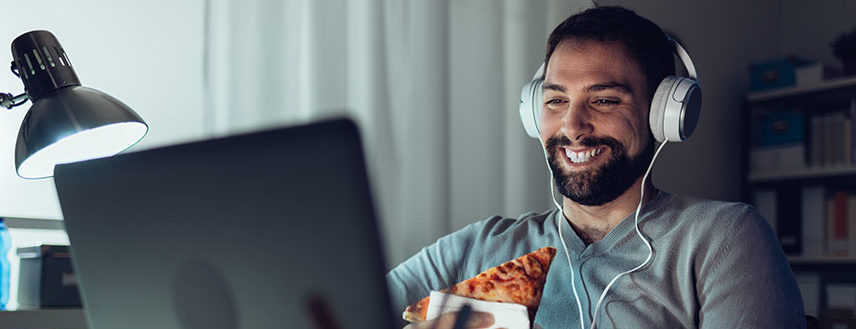There is substantial evidence already linking late night snacking with an increased risk of obesity and type 2 Diabetes. However, a team of researchers from the University of California has found that those snack attacks can affect brain health as well.
The circadian rhythm of our bodies influences when we sleep, wake up, eat meals and even when we are physically strongest. However, sometimes that rhythm is thrown off, so to speak, such as during daylight savings or when we experience jet lag. Our bodies then suffer impairments in physical health as well as cognitive functioning. Memory deficits are one of the most consistent “side effects” of disruptions in circadian rhythm.
In this recent study, researchers investigated how timing of meals affects biological rhythms and behavior. They were particularly interested in chronic sleep disruption since it is becoming so prevalent. Working from home, screen time and hand-held devices have pushed mealtimes later and later.
Using mice as subjects, scientists created feeding schedules that were either aligned or misaligned with the animals’ natural circadian cycles. Because mice are nocturnal, misaligned meals were given during the day and aligned meals were given at night. Researchers thereby simulated “late-night snacking” and observed significant consequences for a variety of behaviors.
Though both groups slept for the same total amount of time, the “late night” snacking group showed reduced sleep during the day and increased sleep at night, compared to their aligned counterparts. Subjects also experienced an increase in overall activity levels during the day (when mice are normally sleeping) and decreases in activity during the night (when mice are normally awake). So, misaligned eating disrupted the sleep cycle of the mice.
Not only that, but the part of the brain that is essential for learning and memory, actually followed when the food was available. Researchers concluded that the memory function of the brain is affected by food, and late night snacking produces an internal misalignment in the body. They then sought to measure the effects of misaligned eating on the ability to learn and remember. The misaligned eaters showed impaired learning and memory ability as compared to the aligned eaters.
Researchers concluded that eating at the “wrong time” of day, especially snacking when you should normally be sleeping could disrupt learning and memory. It’s something to think about for anyone who likes late-night snacking and while it might not be detrimental for someone coming off the occasional jet lag, for the millions of shift workers, it poses potential trouble. The key is to try and keep your body on a consistent sleeping and eating schedule.


Leave a Reply